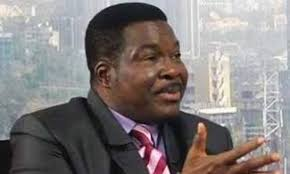
Twenty-five years of uninterrupted democracy in Nigeria: Prospects and possibilities (Part 3)
Essay
by Prof. Mike Ozekhome, SAN
INTRODUCTION
IN the last part of this intervention, we considered the options for reform including leadership, the Constitution and the status of local government areas, followed by peaceful separation and the public perception of public office holders. In this week’s episode, we shall continue where we stopped last week and further x-rays other factors- political corruption as well as the role of women and youths. Enjoy.
POLITICAL CORRUPTION
This takes us to another elephant in the room: political or official corruption. There is no use in reeling out any figures: we all know them. The challenge is how to make democracy a tool in fighting corruption. Does democracy itself aid or hinder corruption? That is the question. This question (which is at the heart of the often expressed opinion in some quarters that Nigerian-style democracy is ‘expensive’) is not misplaced, given the gross disparity in the cost of the just concluded Indian general elections ($250m) and our own, last year (over $650m).
Once again, perception is reality and everything. This huge disparity is certainly worrisome because Nigeria’s population is just about a quarter of that of India. The obvious question is: where did all that money go to? A lot of head-scratching (if not soul-searching) must accompany this question. We must be sincere with ourselves and tell ourselves the truth – some better, home truths.
By way of context, the most powerful woman in India, Ms. Nirmala Sitharaman, Finance Minister (since 2019) and is responsible for a US$4 trillion economy, US$5 trillion stock capitalization, US$700 billion foreign reserves, was recently pictured going to work on the New Delhi Metro.
This pales into insignificance compared to Nigeria, with a fleet of reportedly between 9-11 presidential aircraft, over 70 presidential automobiles, similarly humongous number of vehicles for the Senate President & Speaker of the House of Representatives and each of the 36 States governors; outrageous security votes of over $1bn, again for 35 State governors; at least 4 cars each for over 400 national legislators – all – at state expense (and changed every 4 years). This is just the tip of the iceberg of unconscionable profligacy by state actors in Nigeria, with a paltry US$300b GDP economy.
THE ROLE OF WOMEN
According to the National Population Commission and the Bureau of Statistics, women constitute half of Nigeria’s population. Yet, the glaring injustice of their unequal participation and representation in our public life is one of the regrettable highlights (or low points, depending on how you look at it) of the 25 years of uninterrupted democracy. This gap needs to be urgently addressed, as a situation where only 62 women were elected in the 2019 elections, prompted Maria Arena, the head of the European Union Election Observation Mission in Nigeria to remark that “Nigeria has the lowest rate of women in Parliament in Africa with the number decreasing in 2011.” Putting this in context, Nigeria’s National Assembly consists of a 109-member Senate as well as a 360-member lower Chamber, the House of Representatives. The situation is worse off today because only 21 women (8 in the Senate; and 13 in the House of Representative) exist in the NASS of 469 members. This is a painful 4.48% only.
The importance of this abysmal statistic is underscored by the fact that women are powerful tools in grassroots political mobilization – and, in the other direction, their representation at the highest level of decision-making has the potential (as observed by Ashindorbe and Danjibo) – positively influencing public policy especially in the area of reproductive health, education and children’s rights. Needless to say, tackling this imbalance will be a major feature of the consolidation of democracy in Nigeria and will be consistent with Goal 5 of the Sustainable Development Goals (SDGs) not to mention our National Gender Policy which recommends a minimum of 35% of elective and appointive public positions for women.
YOUTH MOBILIZATION
I agree with Hoffman and Wallace “that even though the #ENDSARS movement showed the democratic dynamism of young Nigerians, it did not produce a political party, and that, in many ways, its separation from traditional politics was its power”. I also agree with them that, the phenomenon nonetheless, showed a hunger for more democracy, not less, among Nigerians and solidarity among our enormous population of young people – as well as their further postulation that we need more young people to engage with politics, offer new ideas and run for office on all the issues which affect all of us – from employment and security to climate and energy policy. It is true that we need our youth to be committed to the kind of long-term civic activism and community organizing which expands the narrow focus on electoral cycles, strengthens democratic institutions and delivers long-term change. The youth in the past wrote the history of Nigeria, whether pre or post – independence. Herbert Macaulay, Nnamdi Azikiwe, Obafemi Awolowo, Ahmadu Bello, Tarfawa Balewa, Okotie Eboh, Dennis Osadebey, Michael Okpara, Akanu Ibiam, Kessington Momoh, M. T. Mbu, Yakubu Gowon, Odumegwu Ojukwu, Olusegun Obasanjo, Alfred Diette – Spiff, et al were either in their twenties or thirties when they shouldered Nigeria’s multifarious challenges.
CONCLUSION
The foregoing is my humble take on the problems – and possible solutions – of democracy in Nigeria. As I candidly admitted, while I don’t profess to have all the answers, I honestly believe the future survival and deepening of democracy in Nigeria must take in at least a strand of some (if not all) the suggestions proffered above. The alternative, in my view, will be but a merry-go-round, a tale of a people (like the Borbons of European history) whose history taught them nothing – and who, moreover, forgot nothing. That would be a tragedy indeed, for a country with such promise, but which sadly, up till now, remains unfulfilled. I have discussed the genre of democracy we practice in Nigeria under different pseudo names corned from my OZEKPEDIA ideologism – Electionocracy; Judocracy; Executocracy; Legislatocracy, Selectocracy; etc.
I, once again, agree with Hoffman and Wallace that Nigeria’s democracy can be strengthened through, amongst others, a revolutionized political system, better quality political parties, more independent and diversified media, a stronger electoral management body and a well-resourced and incorruptible judiciary. In addition, law enforcement and security forces must be devoted to constitutional democracy rather than regime security and protecting elites. Furthermore, entrenched networks of patronage and privilege need to be weakened.
Finally, it is true that while democracy has not yet considerably enhanced the living standards of most Nigerians, it remains the only system of government which can offer the hope of reconciling the diversity of religions, ethnicities and political traditions of our burgeoning population. It may be time to consider whether we must continue with this expensive presidential system of government or change to less expensive West Minister parliamentary system.
Permit me to conclude with the words of one of our foremost contemporary political economists, Prof. Pat Utomi, who recently characteristically pithily observed thus:
“We have walked a familiar road again. The mood and mode becomes recursive for the economy and depressing for the citizen. Shall we just throw up our arms and lament? Grit in pursuit of the different must be the patriot’s loin cloth. But what shall we do? How shall we seek salvation?
Disputed over power grabs often leave a country divided as Nigeria currently is. Deep freeze comes between friends that despoils bonds thicker than bloodlines, and the legitimacy needed by public authorities to execute the common cause runs dry making governing far from optimal in effectiveness.
Those who are wise find truth in reconciling contentions, creating new shared values and inspiring new leadership more broadly appreciating of how to solve the problems confronting all, in ways considered just and fair.
Those who play raw power games and glorify realpolitik scorn talk of healing and renewal but their harvest has continued to be underperformance and Nigeria being the laughing stock of the world.
Those who thought differently have as their legacy the post-civil war reconstruction, rehabilitation and reconciliation and the scattered growth spurts of our national journey. Social and cultural intelligence have become imperatives of leadership effectiveness.
Why is their supply so low to the powerful in nigeria, causing their watch to deliver so much misery? The same leaders who use emotion to mobilize support over reason and rational public conversation, the meeting of democracy and modernity, cannot turn to the same emotions that created the chasm between us and them to heal and elevate human solidarity. I guess this is a new problem for centers of moral cognition.
The bottom line is that it is the weak who assume they are strong and are digging in with typical fascist methods. What the truly strong should be doing now in Nigeria is to stop pretending that things are okay or can be managed.
Not to act with courage now may leave anarchy as our heritage. The cost of doing nothing is too high to play the Nigerian game with”. (The end).
THOUGHT FOR THE WEEK
“The best argument against democracy is a five-minute conversation with the average voter”. – Winston Churchill.
LAST LINE
God bless my numerous global readers for always keeping faith with the Sunday Sermon on the Mount of the Nigerian Project, by humble me, Prof Mike Ozekhome, SAN, CON, OFR, FCIArb., LL.M, Ph.D, LL.D, D.Litt, D.Sc, DHL, DA. Kindly come with me to next week’s exciting dissertation.
A.I
Oct. 29, 2024
Tags: Prof Mike OzekhomeRelated Posts

Nigeria’s political leadership since 1960 and rhythms of corruption (Part 7)
By Prof Mike Ozekhome, SAN INTRODUCTION IN our last episode, we x-rayed the following sub-themes: insecurity: the Boko Haram Insurgency...
Read More
Is the judiciary complicit in the Osun State Local Government debacle?
By Prof. Mike Ozekhome, SAN INTRODUCTION IN a landmark decision in ATTORNEY GENERAL OF THE FEDERATION V. ATTORNEY GENERAL OF...
Read More
Hon. Justice Uwaifo: The Legendary Oracle as a Jurist
By Prof. Mike Ozekhome, SAN INTRODUCTION THE GENESIS OF A LEGAL TITAN THERE are those whose lives shine as beacons...
Read MoreMost Read
Subscribe to Our Newsletter
Keep abreast of news and other developments from our website.


